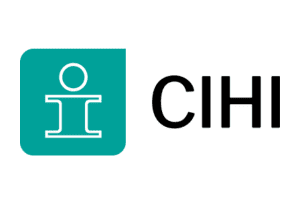It’s a medical practice, Jim – but not as we know it

Artificial intelligence (AI) – whether old school AI algorithms using “big data” or new normative models using large language models (such as chat GPT) – is already fundamentally changing how some Canadian physicians work and will impact the very nature of medical practice itself.
But whether changing approaches to diagnosis and management augmented by AI are actually going to make practice more satisfying and combat the smoldering fires of burnout driven by increasing demands placed on physicians is still very much an unknown.
As with any conferences focusing on health technology right now, recent Canadian healthcare conferences such as the major e-Health conference held in Toronto last week had the role of AI as a major topic of discussion.
Speakers at both #ehealth2023 and the CADTH annual symposium that preceded it in Ottawa provided tangible examples of how major Canadian healthcare institutions are already using AI to improve care delivery. But arguably the most provocative and thought-provoking presentation was the opening plenary at e-Health from Dr. Kaveh Safavi, senior managing director of global health for Accenture.
In discussing the future of healthcare and the potential roles for AI, Dr. Safavi noted “we are fundamentally changing the nature of how we do work, and it will be different in half a decade or a decade for now.” Using technology to replace tasks in healthcare will mean redistributing remaining tasks and essentially changing the healthcare workforce to a combination of “fixed and adaptive workers”, he said.
Dr. Safavi also challenged the widely held belief that using AI to help relieve physicians and nurses of the administrative burdens they currently face will allow them to focus on more complex tasks and make reduce burnout. Doctors complain bitterly about doing administrative tasks but complain even more when these tasks are being taken away because it means they must work at peak capacity continuously, he said.
Interestingly at the very same conference other speakers maintained that allowing physicians to focus on patient care and deal with complex cases and patient care would do exactly what Dr. Safavi said it will not – namely improve physician well-being and reduce burnout.
For AI to be used productively in healthcare, Dr. Safavi said, practitioners will need to know how to ask the right questions of the AI tools and interact with them. A panel discussion focused specifically on the role of AI in healthcare at e-Health agreed that medical schools needed to integrate effective use of AI into medical education.
“When we think about how we train clinicians today and you look at medical schools and nursing schools, I think we’re a little behind the curve,” said Aloha McBride, global health sector leader with EY Consultants, adding basic training about AI needs to be incorporated into undergraduate and postgraduate curricula. “Clinicians especially need to be able to understand why this particular algorithm is presenting them with this particular recommendation. And probably more importantly, they need to be able to explain it to their patients.”
Another speaker on the same panel, Rachel Dunscombe, former CEO of the National Health Service (NHS) Digital Academy said that within the NHS in the UK, senior clinical leaders are already being provided with such training.
As noted, speakers at both e-Health and the CADTH meetings showed how AI is already being integrated into care delivery at major Toronto hospitals.
In the closing session at CADTH, Dr. Muhammad Mamdani, vice president of data science and advanced analytics at Unity Health Toronto said much of healthcare is data driven and AI can assist in using data better for diagnosis, prognosis and treatment. He described how a predictive AI algorithm is being used at Unity Health to monitor internal medicine patients to assess risk and that this is reducing mortality rates.
At e-Health, Dr. Bradly Wouters, executive vice president of science and research at the University Health Network in Toronto described how clinicians at Princess Margaret Cancer Centre are implementing use of an AI algorithm to quickly and accurately develop a treatment plan for use of radiation therapy.
Other examples were also given about the impact of combining big data with machine learning to develop clinical support tools.
This is part 1 of a 2-part series dealing with discussions of AI at e-Health. The second part will discuss how AI could best benefit community-based family physicians.
Reprinted with permission from Pat Rich’s Days of Future Past.




